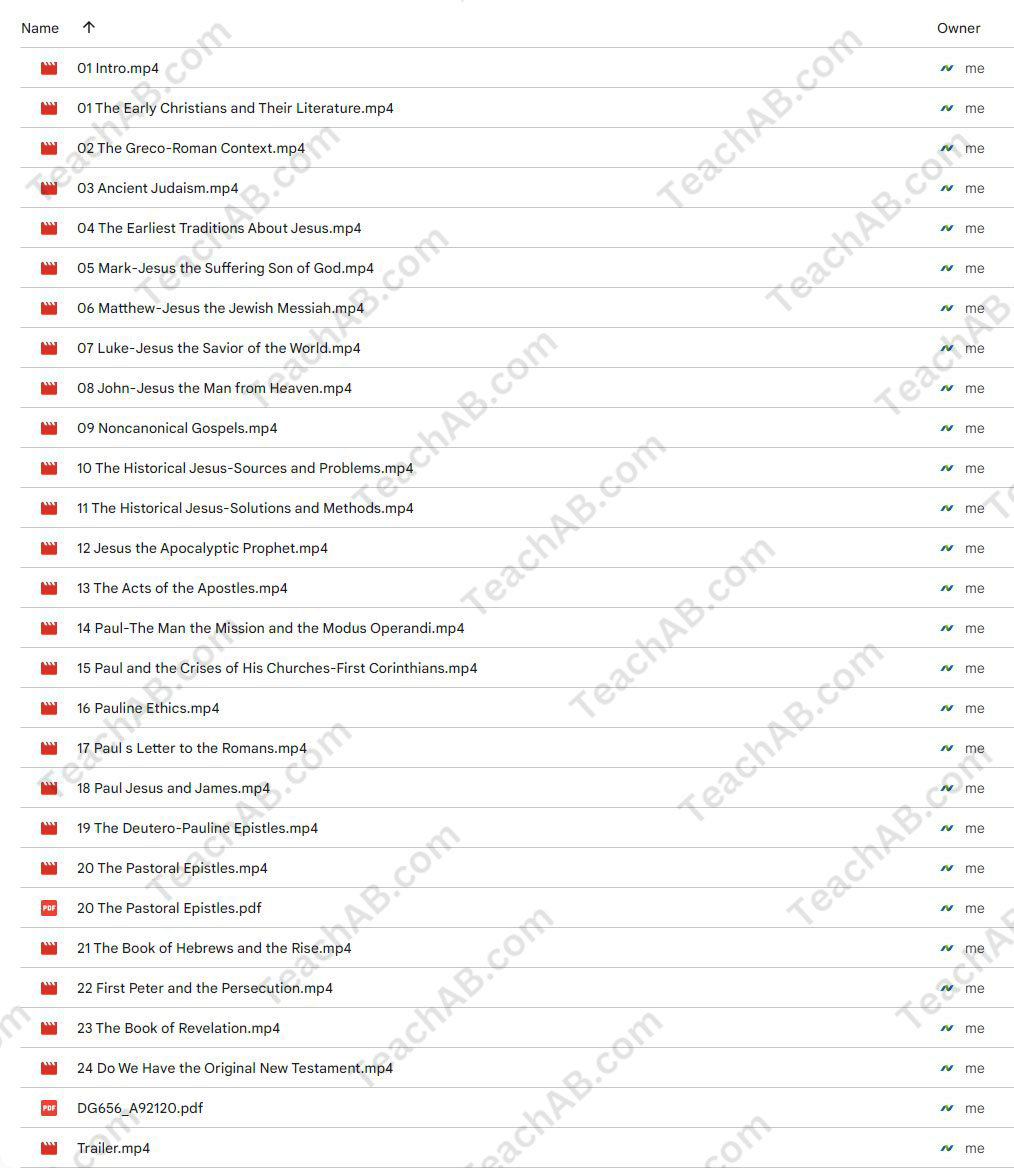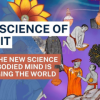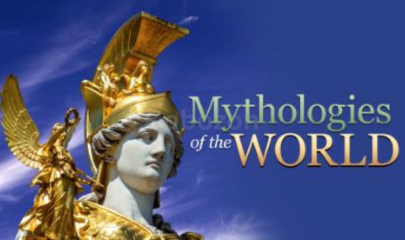The New Testament By Bart Ehrman
$239,00 $5,00
Review of the New Testament by Bart Ehrman – Digital Download!
Let’s embark on a captivating adventure to uncover remarkable insights that spark your curiosity and elevate your understanding

The New Testament By Bart Ehrman
Overview

Review of the New Testament by Bart Ehrman
The intricate layers of history, culture, and faith surrounding the New Testament make it a compelling topic of exploration and debate. Bart Ehrman, a towering intellectual in the field of biblical scholarship, has devoted much of his time to unwrapping these layers, revealing the complexities beneath the surface narratives. His works serve not only as academic inquiries but as invitations for readers whether scholars or laypersons to engage with the New Testament in a meaningful way. Through his nuanced approach, Ehrman challenges traditional views and encourages critical thinking about the text’s historical reliability, authorship, and the transmission of its manuscripts over centuries. This article aims to delve into Ehrman’s contributions, particularly focusing on how his scholarship enriches our understanding of the New Testament.
Bart Ehrman’s Scholarly Background and Approach
Bart Ehrman’s reputation as a prominent scholar is underpinned by his extensive research and a plethora of published works. His academic journey began with a firm foundation in biblical studies, leading to a degree in Religious Studies followed by a Ph.D. in New Testament and Early Christianity. This background empowers him to approach the texts with both reverence and rigorous analysis. Central to Ehrman’s scholarship is his use of textual criticism, a method that examines the various manuscript versions of biblical texts to trace their historical evolution.
Ehrman’s perspective is notably critical he does not shy away from addressing the discrepancies found among New Testament manuscripts. Rather than simply cataloging these differences, he interprets their implications for understanding the development of early Christianity. For instance, he highlights that most variations are minor and do not typically alter essential Christian doctrines, a reassurance for believers that foundational tenets of faith remain intact despite textual discrepancies. This assertion is particularly compelling in his book Misquoting Jesus, which educates readers on how subtle alterations over time can often lead to significant interpretative shifts, yet maintains that these shifts do not undermine the essence of the Gospel messages.
In The New Testament: A Historical Introduction to the Early Christian Writings, Ehrman expands his exploration to incorporate historical context and thematic analysis. Here begins the journey into the authors, societal influences, and theological developments that shaped the New Testament. Each book within the New Testament isn’t treated as a standalone text but as part of a broader tapestry of early Christian literature intertwined with Jewish traditions and Greco-Roman culture.
Key Themes in Ehrman’s Work
One of the critical themes in Ehrman’s scholarship is the historical reliability of the New Testament. He posits that understanding the life of Jesus and the formative events of early Christianity necessitates a thorough examination of the historical evidence available. This scrutiny includes secular historical records, archaeological findings, and the socio-political landscape of the time. By integrating these elements, Ehrman paints a more nuanced picture of the period, moving beyond the dogmatic interpretations often found in religious narratives.
Additionally, Ehrman’s exploration of figures such as the Apostle Paul sheds light on the developmental landscape of early Christian thought. Paul’s letters, which hold pivotal doctrinal significance, are examined not only for their theological content but also for their historical context. His contributions were not made in a vacuum; they were responses to the cultural and ideological challenges of his time. This contextual approach encourages readers to consider how early Christians navigated their faith amidst competing beliefs and practices.
In discussing other early Christian writings, such as the Gospel of Thomas, Ehrman illuminates the rich diversity present within early Christianity. Understanding these non-canonical texts provides a broader lens through which to view the New Testament. It encourages an appreciation for the multiplicity of beliefs and practices that existed alongside what eventually became orthodox Christianity. This diversity, he argues, reflects the dynamic and contested nature of early Christian identity.
Implications for Understanding Faith and Historical Accuracy
Ehrman invites readers to engage with the New Testament as both a sacred text and a historical document. By doing so, he confronts the tensions that often arise when faith and historical inquiry intersect. For many, the New Testament holds profound religious significance and is considered divine scripture. However, for Ehrman, acknowledging the text’s historical origins and the complexities of its transmission is crucial for a comprehensive understanding of its impact on Western civilization.
One of the poignant aspects of his argument is the interplay between faith and reason. He asserts that faith is not inherently at odds with historical criticism. Instead, a deeper engagement with the historical context and textual variations can enhance one’s faith. By understanding the nuances of the text, believers can develop a more informed relationship with their scriptures. This approach respects the religious significance of biblical texts while allowing for critical analysis and inquiry.
Furthermore, Ehrman’s emphasis on the implications of textual variations echo the larger debate within Christian communities about the nature of biblical authority. In an age where many seek definitive answers, Ehrman’s work presents a refreshing perspective encouraging doubt, questioning, and the pursuit of knowledge. It highlights that truth can be complex and multifaceted rather than simplistic and absolute.
Conclusion: A New Landscape of Biblical Scholarship
In summary, Bart Ehrman’s scholarly contributions to the New Testament invite readers to traverse an intellectually rich landscape that balances the sacred and the historical. His works serve as a catalyst for critical thought, urging readers to reconsider the foundations of their beliefs in light of textual criticism and historical context. By offering fresh perspectives and acknowledging the nuances inherent in scriptural texts, Ehrman has undeniably reshaped the conversation around the New Testament.
Ehrman’s scholarship serves an invaluable role in contemporary biblical studies, challenging readers to embrace complexity rather than shy away from it. His insights resonate not only within academic circles but also among individuals seeking a deeper understanding of their faith. Ultimately, Bart Ehrman encourages an ongoing dialogue one that recognizes the New Testament as a vibrant, evolving text reflective of a diverse early Christian experience, and which remains relevant in our quest for truth today.
Frequently Asked Questions:
Innovation in Business Models: We use a group purchase approach that enables users to split expenses and get discounted access to well-liked courses. Despite worries regarding distribution strategies from content creators, this strategy helps people with low incomes.
Legal Aspects to Take into Account: Our operations’ legality entails several intricate considerations. There are no explicit resale restrictions mentioned at the time of purchase, even though we do not have the course developers’ express consent to redistribute their content. This uncertainty gives us the chance to offer reasonably priced instructional materials.
Quality Control: We make certain that every course resource we buy is the exact same as what the authors themselves provide. It’s crucial to realize, nevertheless, that we are not authorized suppliers. Therefore, the following are not included in our offerings: – Live coaching sessions or calls with the course author.
– Entry to groups or portals that are only available to authors.
– Participation in closed forums.
– Straightforward email assistance from the writer or their group.
Our goal is to lower the barrier to education by providing these courses on our own, without the official channels’ premium services. We value your comprehension of our distinct methodology.
Be the first to review “The New Testament By Bart Ehrman” Cancel reply
You must be logged in to post a review.



















Reviews
There are no reviews yet.